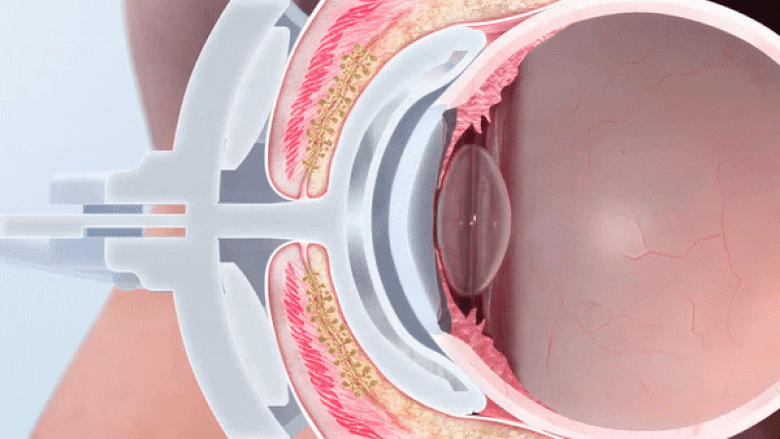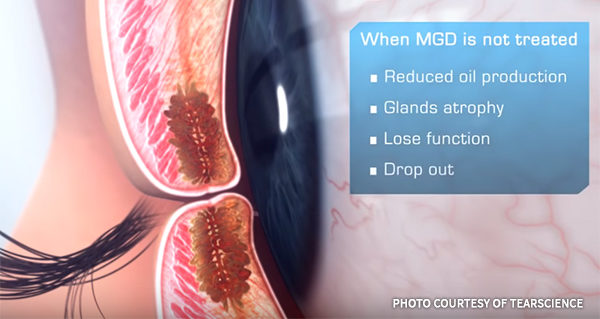Lipiflow
LipiFlow Thermal Pulsation System
LipiFlow is a treatment for:
- Meibomian gland dysfunction (MGD)
- Dry eye syndrome caused by MGD

Tears Protect Our Eyes
An adequate and consistent layer of tears on the surface of the eye is essential in keeping them comfortable and healthy. Tears help to moisturize the eye and wash away dirt and other particles.
The tear film is made of of three layers: (1) mucin (2) aqueous (3) lipid
The Function Of Meibomian Glands
By secreting oil, meibomian glands help to maintain the lipid layer of the tear film. Lipids help to prevent tears from evaporating; they also help to increase lubrication and comfort.

LipiFlow For Meibomian Gland Dysfunction
Meibomian gland dysfunction (MGD) occurs when a blockage or abnormality prevents the meibomian glands from secreting enough oil to keep the eye moisturized. People with MGD can suffer from eye dryness, redness, irritation, and a “sandy” feeling. MGD can also caused blurred vision. People with MGD are more sensitive to environmental factors such as wind, humidity, and temperature.
The LipiFlow System uses a combination of pressure and heat to unblock meibomian glands. LipiFlow technology is able to apply heat directly onto the meibomian glands, allowing rapid liquefaction of meibomian gland blockages for easier removal. Pulsatile pressure is then applied to move the gland blockages to the gland openings in order to evacuate the contents.
Why LipiFlow?
LipiFlow technology has more than 10 years of research. It has shown to be be safe and effective in peer-reviewed studies. [1]
- 20-Min Procedure
- Drug-Free Treatment
- Revolutionary Vector Thermal Pulse Technology™ (VTP)
- Advanced Technology Protects Delicate Structure of The Eye
- Proprietary Heat Technology Ensures Precise Temperature
- Intelligent Pressure Feedback Loop
- Unique Peristaltic Motion Efffectively Removes Blockages
What Happens If MGD Is Left Untreated?
MGD is a progressive, chronic condition. Left untreated, MDG may cause eye irritation, inflammation, and ocular surface disease [2].
In severe cases, it is possible for meibomian gland atrophy to occur. Once completely atrophied, glands can no longer function. In the long-run, this results in severe discomfort and potential vision loss.
Early diagnosis and treatment can drastically improve MGD. If you are noticing symptoms of MGD, it is best to consult and eye specialist.

Book a Consultation
Get an eye checkup with us now!
Interested to fix a consult with our eye specialist? Get in touch with us!


